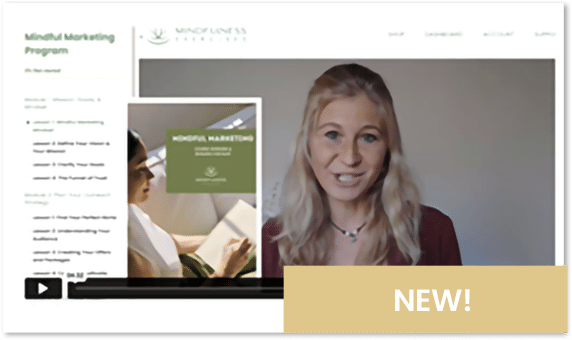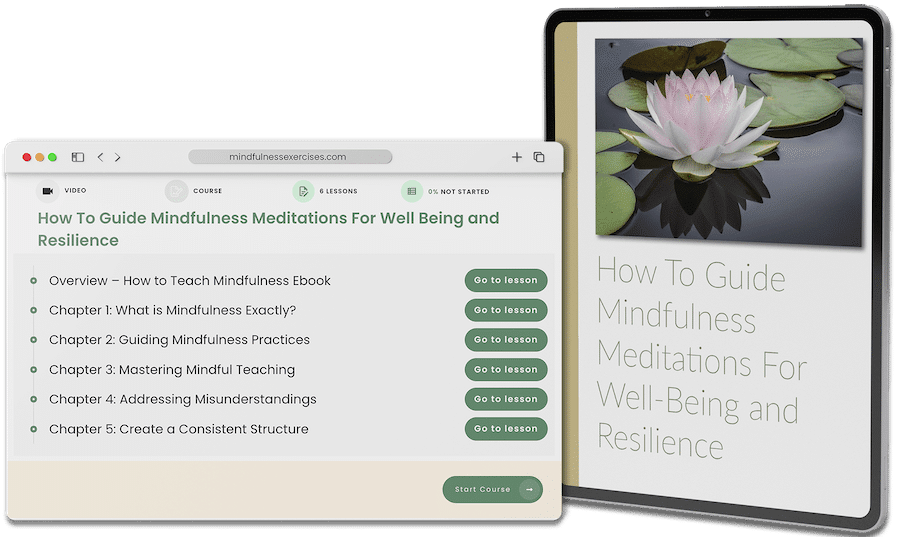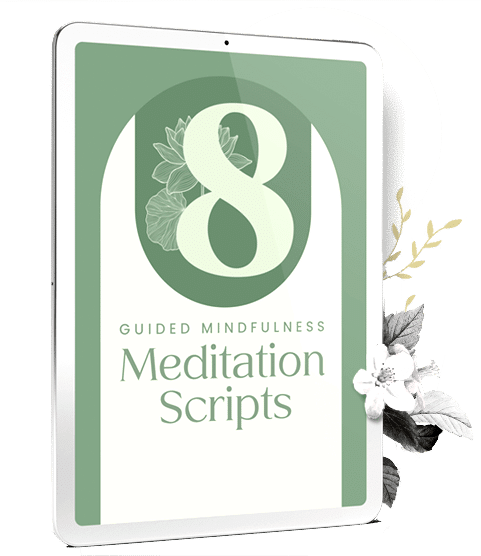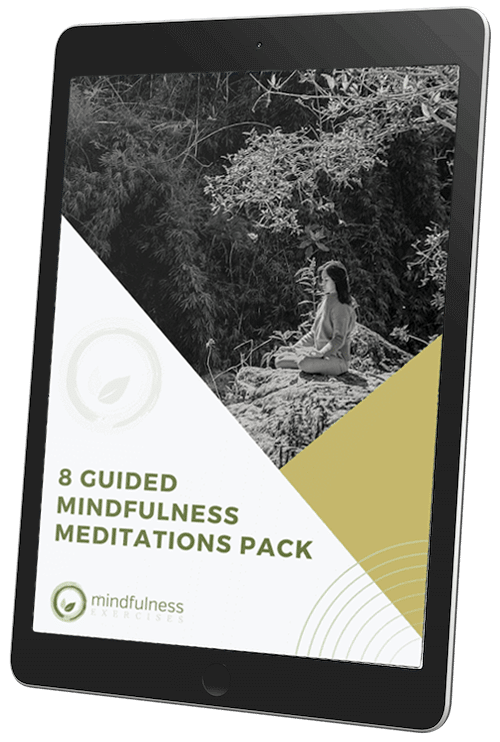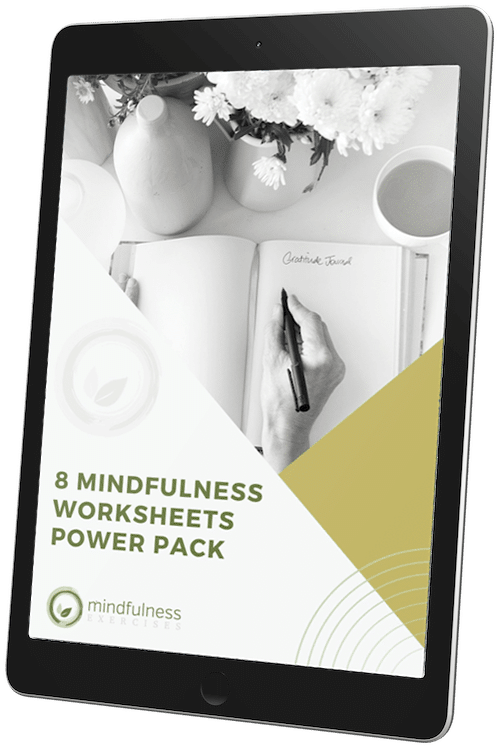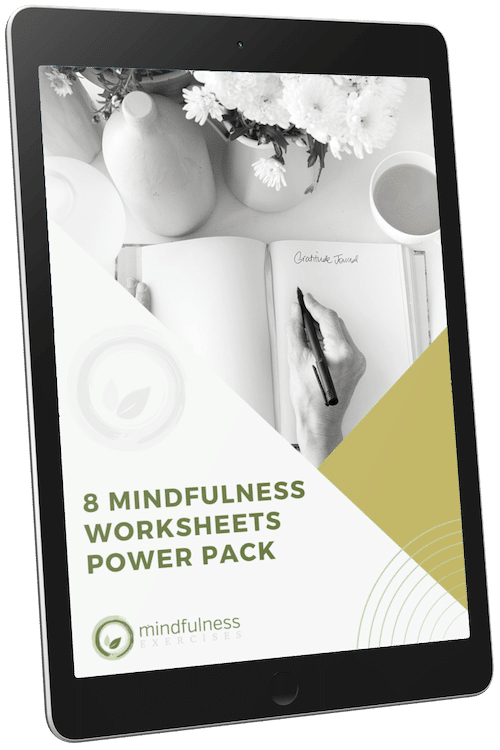Are November, December and January’s holidays the most wonderful time of the year? It depends on who you ask. For some, the holidays can trigger or exacerbate pre-existing stress. If party invites, family time and the abundance of high sugar foods is making you anxious, mindfulness can help.
Common Sources of Holiday Stress
Common sources of holiday stress aren’t too different from the sources of our everyday stress. In general, stress arises when we don’t have the resources to meet the conditions or emotions we’re experiencing.
According to the American Institute of Stress, it’s important to recognize stress exists on a continuum that ranges from feeling totally calm to completely overwhelmed. In the middle is a positive state called eustress. Eustress is the stress that provokes our adrenaline, causes us to take action, and finds us at our most productive. Overwhelming and unhealthy stress, or distress, is the type that leaves us feeling depleted, unwell and un-resourced.
During the holidays, our everyday fears and anxiety become exacerbated as we diverge from our normal routines and face greater or different demands on our money, patience and time. The following are common sources of stress, and how they manifest over the holiday season. If any of them sound familiar, you’re at risk for holiday stress.

Financial Stress
Family
Travel
Work
Health
The political climate, an ongoing global pandemic and recent incidents of racial violence conflict with holiday images of snow-globe like perfection. Attempting to meet the high expectations of unrealistic appearance during the holidays is also a source of great stress, as we’re bound to fail.

How Mindfulness Eases Holiday Stress
Mindfulness is non-judgemental awareness of your present-moment experience. When we become aware of how we’re feeling, and we’re able to be equally present with joy and discomfort, our hearts open and our heads clear.
Acknowledge Your Stress
Often when we’re stressed, we’re the last to realize it. It’s not until family or friends give us the side-eye that we notice we’re becoming a little too reactive. Sometimes, the body tells us we’re stressed through fatigue, headache, stomach discomfort, or illness.
Mindfulness and the practice of self-awareness has the power to stop holiday stress before it starts. Mindfulness broadens our awareness and our ability to self-reflect. In the context of tackling holiday stress, it’s important to understand what’s stressing us out. Reflect upon the list above, or just close your eyes and turn inward. Ask your body what it’s feeling and be open to the response.
Understanding our triggers allows us to establish a mindful plan of action through which we might avoid stressful situations. If we remain aware, we’ll notice when things are becoming too much, at which point we might mindfully choose to do less, take a break, or set boundaries for the situations we just can’t side-step.
Practice Acknowledging your Stress with this Mindfulness Exercise

“The only way to live is by accepting each minute as an unrepeatable miracle.”
- Tara Brach-
Practice Acceptance
Acceptance doesn’t mean becoming a doormat and giving up your agency. Acceptance means being realistic. Acceptance is a form of mindfulness that helps us see things as they are, absent of the history we have or the stories we tell. Practicing acceptance also helps us avoid the stressful demands of perfection.
Notice if you find yourself saying things like “I have to do XYZ,” or “It has to be like XYZ” There are very few “have to’s” in life. Most likely, in these moments you are holding yourself to an unreasonable standard of perfection.
Notice when you say things such as “he always does XYZ” or “XYZ always happens to me.” These are signs that you recognize certain patterns, yet haven’t accepted them. Allow people and situations to reveal their truth.
Each time your reality conflicts with your expectations, you’re setting yourself up for stress. When we accept reality, we’re far more likely to do things like setting a budget, creating a schedule, establishing boundaries, and taking on only what we can joyfully accomplish.
Embrace the Power of Acceptance with this Mindfulness Exercise

“The spaciousness of pure awareness is compassion.”
- Jon Kabat-Zinn-
Practice Compassion
Mindfulness encompasses far more than paying attention to our breath. When we tune in to the present moment and take time to recognize our feelings and emotions, we become more open hearted. Compassion strengthens as we become more accepting and learn to see things as they are. We begin to understand we are each far more alike than we are different, and we naturally extend our compassion to others.
Stressful holiday situations often involve others. Stress arises when we become trapped in cycles of old familial patterns, butt heads with difficult bosses or get stuck in long lines of holiday shoppers. Practicing compassion sets us free from our habitual reactivity. When we practice mindfulness, we’re able to expand the pause between action and response. Within this space, we can make better decisions.
Compassion allows us to recognize that when others act out, they do so because they are suffering. The solution is not to become angry, but to extend kindness. It’s important not to confuse compassion with pity. Pity keeps us feeling separate and superior. Compassion comes from a feeling of connection and the recognition that we’re all equal in our longing for happiness.
Open Your Heart with 8 Mindfulness Exercises for Love and Compassion

“Gratitude unlocks the fullness of life. It turns what we have into enough, and more.”
- Melody Beattie -
Practice Gratitude
From one perspective, holiday stress is what the internet might refer to as a ‘first world problem.’ It’s a privilege to have too many parties to attend, too many friends to send cards to, too much good food to eat and too many choices when it comes to where and how to spend your time.
Referring to our problems in this way is not meant not to disregard the very real stress we feel, but to offer context in which we might see our problems in a new light. Gratitude is a powerful tool we can use to change our perspective on stress.
Mindful gratitude practices help us shift perspective by asking us to focus on what’s going well versus what’s going wrong. When we practice gratitude, we keep sight of what’s really important. We can even be grateful even for moments of stress because they teach us something.
Stress can teach us what our limits are, when we’ve taken on too much, when we must learn to set clear boundaries, or when we need to work within a budget. In any moment of stress we can ask, “What is this tryin to teach me?” We can then practice gratitude for the lessons learned.
Practice Gratitude with this Mindfulness Exercise
Prioritize Your Wellness
Stress is furthered along the spectrum from eustress to distress when we have fewer coping resources at our disposal. Mindfulness and meditation are valuable coping tools, but so is a healthy diet, plenty of sleep, and exercise. Our capacity to handle stress expands when we’re well nourished, well rested, and healthy.
Coping via unhealthy habits only makes stress worse. Drinking or taking drugs causes more problems than it solves, turning to food for comfort leaves us with feelings of guilt, and avoiding others deprives us of the opportunity to heal our relationships.
As the holidays approach and our schedules get busier, mindfulness is key in maintaining a routine that includes self-care and daily meditation. Mindfulness prevents us from deprioritizing our own physical and mental wellness, and mindfulness keeps us from turning toward unhealthy coping or avoidance mechanisms.
Prioritizing our physical and mental wellness requires awareness, acceptance, and self-compassion. With daily meditation at the top of our priority list, we’re far more likely to keep each additional priority in healthy order.
Share Mindfulness for the Holidays
According to a recent survey by the American Psychological Association, 3 out of 4 adults in the United States have felt at least one symptom of distress in the last month. If the holidays are stressing you out, you’re not alone in what you’re feeling.
This year, when you gather together with friends or family, choose to be honest. Share your experience with stress and the mindful steps you’ve taken to feel better. Wisely sharing our vulnerability is a key to improving our mental health and fostering close human relationships. This closeness is what the holidays are truly all about.
Gifting your loved ones a book on mindfulness or a guided meditation experience are both wonderful ideas. The most valuable gift you can give is the mindful presence of a healthier, peaceful and happier version of you.










